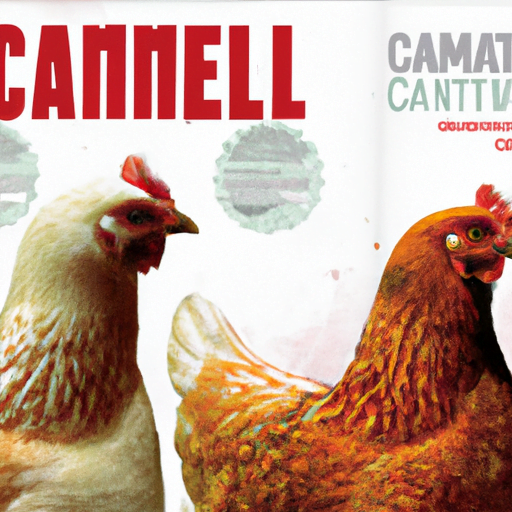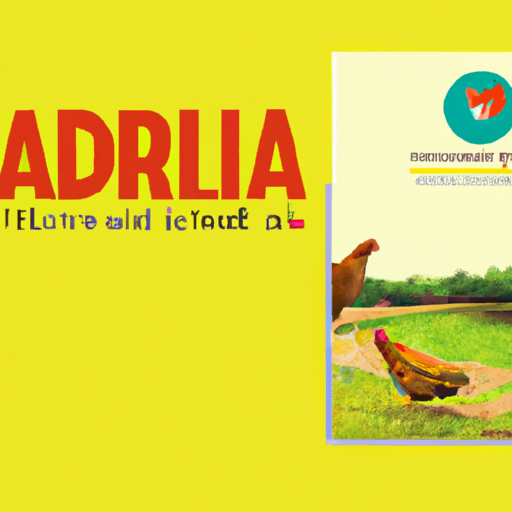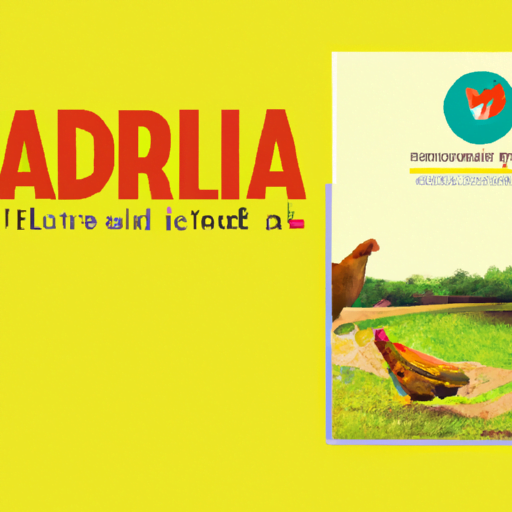Have you ever considered living off the grid? It’s an intriguing lifestyle that allows you to rely on renewable resources and become self-sufficient. And one aspect of off-grid living that many people overlook is raising their own fowl for eggs or meat. But with so many different types of fowl to choose from, which one is the easiest to raise? In this article, we’ll delve into the world of fowl and explore the ideal choices for an off-grid lifestyle. Whether you’re a beginner or seasoned homesteader, you’ll find valuable information to help you make the best choice for your needs.
Raising fowl, such as chickens or ducks, comes with numerous benefits. They provide a sustainable source of food, whether by laying eggs or providing meat. Plus, they help control pests and weeds naturally, making them valuable additions to any off-grid homestead. But when it comes to ease of raising, some fowl species are more beginner-friendly than others. Factors like temperament, hardiness, and adaptability play a significant role in making a fowl easier to care for. In the upcoming sections, we’ll dive deeper into specific fowl breeds and discuss their characteristics, enabling you to make an informed decision based on your preferences and circumstances.
Whether you dream of having a flock of free-ranging chickens or want to experiment with raising ducks, this article will guide you in selecting the ideal fowl for your off-grid lifestyle. From the low-maintenance, hardy chickens that can withstand various weather conditions, to the friendly and self-sufficient ducks known for their efficient pest control skills, there’s a fowl out there that’s perfect for you. So, if you’re ready to embark on the journey of raising your own fowl in an off-grid lifestyle, read on to discover the best options available and start planning your own sustainable flock.

Choosing the Ideal Fowl to Raise In an Off-Grid Lifestyle
Living off the grid offers numerous benefits, such as independence from utility companies, reduced carbon footprint, and the opportunity for self-sufficiency. One aspect of self-sufficiency that many off-grid enthusiasts explore is raising fowl. Chickens, ducks, geese, and turkeys are all suitable options for off-grid living. However, determining which fowl is most ideal for your specific lifestyle requires some consideration. In this article, we will explore the benefits and challenges of raising different types of fowl, as well as provide factors to consider in fowl husbandry when living off the grid.
Independence from utility companies
One of the key benefits of off-grid living is the independence it provides from traditional utility companies. By raising your own fowl, you can have a steady supply of eggs and meat without relying on external sources. This independence ensures that you have a reliable source of food, no matter the conditions of the outside world.
Reduced carbon footprint
Another advantage of raising fowl in an off-grid lifestyle is the reduced carbon footprint. By producing your own eggs and meat, you eliminate the need for transportation, packaging, and other processes associated with store-bought products. This reduced carbon footprint contributes to a more sustainable way of living and is better for the environment.
Opportunity for self-sufficiency
Raising fowl in an off-grid lifestyle also provides the opportunity for self-sufficiency. By having your own flock, you can ensure a constant supply of eggs and meat, reducing your dependence on external food sources. This self-sufficiency allows you to have greater control over the quality and sustainability of your food, providing a sense of security and peace of mind.
Now, let’s delve into the specific considerations for raising fowl in an off-grid lifestyle.
Space and housing requirements
When choosing the ideal fowl for off-grid living, it’s essential to consider the space and housing requirements. Depending on the type of fowl, you will need to provide adequate space for them to roam and forage. Additionally, suitable housing is crucial for protecting the fowl from predators and extreme weather conditions. Before deciding on a specific type of fowl, evaluate your available space and ensure it can accommodate their needs.
Availability of food and water sources
Another consideration is the availability of food and water sources. Fowl require a consistent supply of both, and it’s important to assess whether your off-grid property can meet these needs. For example, chickens and ducks require a diet consisting of grains, insects, and vegetation, while geese and turkeys have different dietary requirements. Additionally, access to clean, fresh water is crucial for the health and well-being of the fowl.
Climate suitability
The climate of your off-grid location is an important factor to consider when choosing the ideal fowl. Some fowl are more adaptable to cold weather, while others thrive in warmer climates. Ensure that the type of fowl you choose is suitable for the climate in which you will be raising them. Climate considerations include temperature, humidity, and weather patterns.
Now that we’ve explored the considerations for raising fowl in an off-grid lifestyle, let’s delve into the types of fowl that are suitable for this lifestyle.
Chickens
Chickens are perhaps the most popular choice for off-grid living. They are relatively easy to care for, provide a consistent supply of eggs, and can also be raised for meat. Chickens can adapt to a wide range of climates and are generally low maintenance. However, they are susceptible to predator risks, so proper housing and protection are necessary.
Ducks
Ducks are another suitable option for off-grid living. They offer benefits such as pest control, as they consume insects and are effective at reducing pests in the surrounding area. Ducks also provide a good source of eggs and meat. However, they have specific water source requirements, as they need access to ponds or other bodies of water for swimming and cleaning.
Geese
Geese can be excellent additions to an off-grid lifestyle, particularly if you value their watchdog capabilities and weed control abilities. Geese are known to be territorial and will alert the presence of strangers. They also have a knack for eating invasive weeds, which can be beneficial for maintaining a healthy off-grid environment. However, geese require ample water for swimming and cleaning, and their aggressive behavior may be a challenge for some people.
Turkeys
If you’re looking for a larger source of meat production, turkeys can be a suitable option for off-grid living. Turkeys require less maintenance compared to chickens and ducks, and they have a self-sustaining nature. However, they have limited egg production and are susceptible to certain diseases. Proper healthcare and disease prevention strategies are necessary when raising turkeys.
When choosing the most suitable fowl for your off-grid lifestyle, it’s important to consider various factors.
Consider your living situation
Evaluate your living situation, including the available space, climate, and resources. Each fowl has its specific requirements, and it’s essential to ensure that your living situation can meet those needs.
Assess your resources
Consider the resources available to you, such as food and water sources, as well as the infrastructure necessary for housing the fowl. Ensure that you have access to adequate resources to support the fowl’s well-being.
Evaluate the purpose of raising fowl
Determine the primary purpose of raising fowl. Are you primarily interested in egg production, meat production, or both? Different fowl have different characteristics and abilities when it comes to egg and meat production.
Research specific breeds
Lastly, research and familiarize yourself with the specific breeds of fowl. Each breed has its own traits, such as laying patterns, size, and temperament. Consider these factors to find the breed that aligns with your goals and preferences.
In fowl husbandry for off-grid living, there are additional factors to consider.
Feeding and nutrition
Ensure that you provide a balanced diet for your fowl that meets their nutritional needs. This may include a combination of commercial feed, grains, insects, and vegetation. Pay attention to their feeding routine and adjust as necessary.
Healthcare and disease prevention
Maintaining the health of your fowl is crucial for their well-being and productivity. Implement proper healthcare and disease prevention measures, such as regular check-ups, vaccinations, and hygienic practices. Consult with a veterinarian who specializes in fowl to ensure the best care for your flock.
Breeding and reproduction
If you plan to breed your fowl, familiarize yourself with breeding and reproduction practices. Understand the mating behaviors and cycles specific to each type of fowl and make necessary arrangements for successful breeding.
Fowl behavior management
Lastly, effective fowl behavior management is important for a peaceful and productive living environment. Learn about the behavior traits and tendencies of your chosen fowl and implement proper management strategies. This may include providing adequate socialization, space, and environmental enrichment.
In conclusion, choosing the ideal fowl to raise in an off-grid lifestyle requires careful consideration of various factors. Assess your specific off-grid lifestyle needs and resources when making your decision. Each type of fowl has its benefits and challenges, so research and evaluate accordingly. With the right choice and proper care, raising fowl can contribute to a self-sufficient and sustainable off-grid lifestyle.





